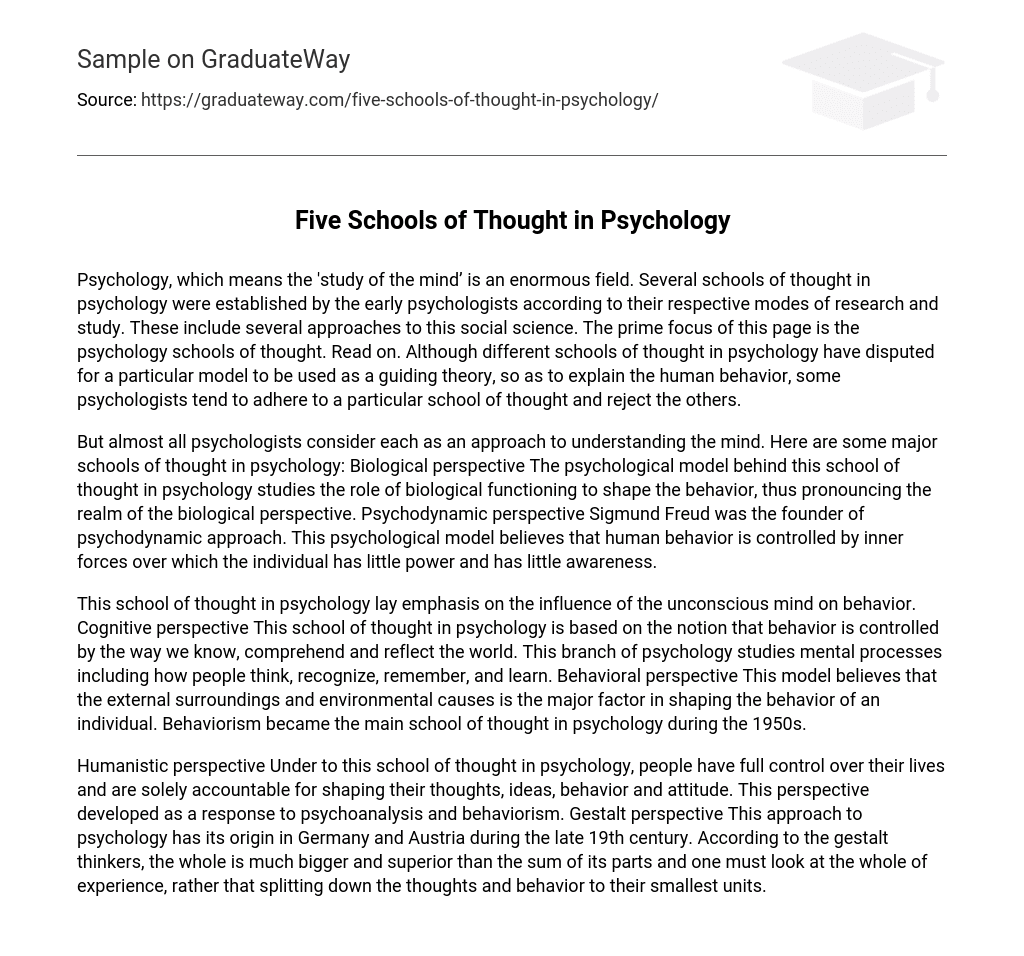Psychology is a broad discipline that studies the mind. Initially, psychologists developed different schools of thought with distinct research methods and approaches to understand human behavior. These schools represent various perspectives in psychology. This page primarily aims to examine these diverse psychological schools of thought. While psychologists continue to debate the most effective model for explaining human behavior, some prefer to follow only one school of thought and ignore others.
Psychologists generally consider each approach as a way to understand the mind. These are the main schools of thought in psychology:
The biological perspective focuses on how behavior is influenced by biological processes and emphasizes its importance.
Sigmund Freud’s psychodynamic perspective suggests that human behavior is controlled by internal forces that are beyond our conscious control or influence.
This text examines the cognitive and behavioral perspectives in psychology, which highlight different factors impacting behavior. The cognitive perspective concentrates on the role of the unconscious mind and stresses understanding, comprehension, and reflection as determinants of behavior. In contrast, the behavioral perspective places emphasis on external surroundings and environmental causes as key influences on behavior. Behaviorism rose to prominence in psychology during the 1950s.
The Humanistic perspective in psychology underscores that individuals have full control over their lives and are accountable for molding their thoughts, ideas, behavior, and attitude. This standpoint evolved as a response to psychoanalysis and behaviorism. Conversely, the Gestalt perspective originated in Germany and Austria during the late 19th century. According to Gestalt thinkers, the entirety holds greater significance than the mere sum of its individual parts. They advocate for examining the overall experience rather than dissecting thoughts and behavior into their smallest elements.





